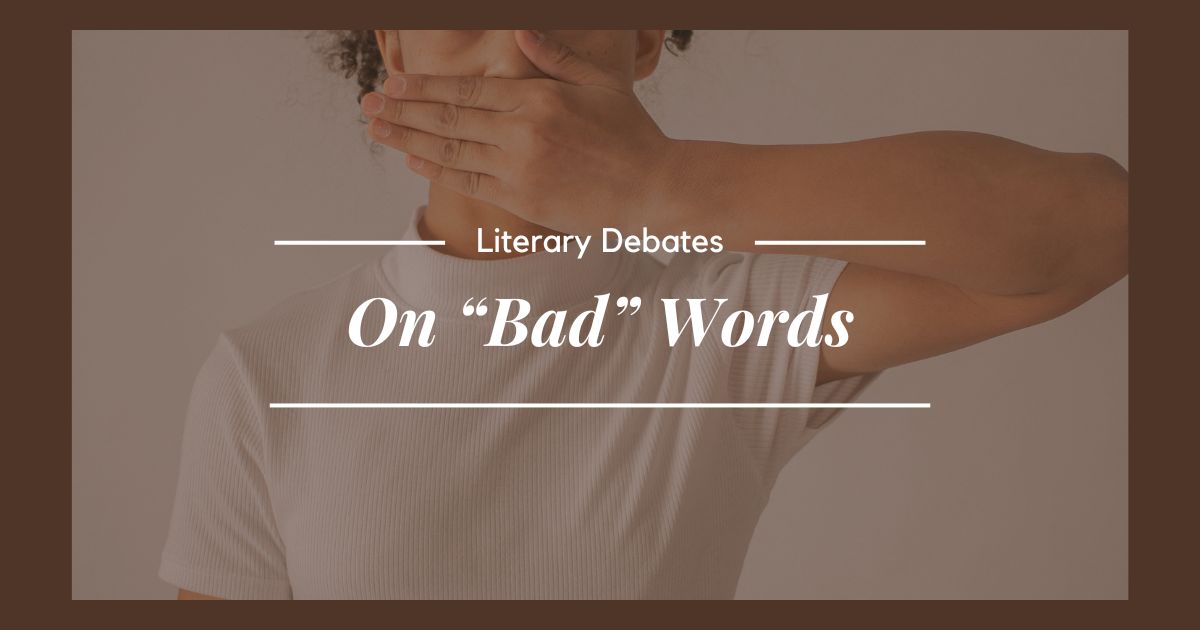Every now and then, I’ll see reviewers highlight their dislike for the amount of profanity in a given book. They might say things like, “it’s immature to use so many of these words” or “it’s inappropriate.” Whereas other reviewers will love it for that same reason, or perhaps won’t even notice.
But when I mentioned this to my husband, he had a different response. When I told him there are those who dislike profane books, his response was, “There’s a degree of immaturity to that.” My ears perked up. Interesting, interesting.
So what’s the verdict, really? Is it just personal preference, or is there something more here? I decided to dig into it.
Our general dislike for profanity actually stems from a history of classism.
Say what?
It’s true. A lot of our “bad” words in English have Old English roots, but the nobility of yore spoke Old French. Throughout history, one of the many methods employed by ruling classes was deeming the way the lower classes spoke as crude, indelicate, or “low brow,” or just otherwise beneath them. Therefore “derriere,” a French word, is seen as more proper than “ass” – even though they say the same thing.
It still happens in today’s modern world, but in perhaps a slightly different way. If you’re familiar with code switching, or the need to present one way in front of school or work peers while presenting in an entirely different way at home, then you likely already know this. Code switching is largely about speech patterns – using tones and words to match the social context. In academia or the workplace, someone may do this because they feel it’s the only way they might be respected or taken seriously.
Think of the movie Erin Brockovich, and you’ll understand what I’m saying.
Beyond that, profanity in books can tell us about a character or setting.
The way a character speaks can tell us so much about what kind of person they are. (I talk about that more in this blog.) With profanity specifically, a character might cuss as a form of rebellion, to put off a certain image, or as a form of expression – the context will tell us which it is.
It can also tell us about the setting by indirectly showing us social expectations, societal norms, and the culture among friends or colleagues. A lot of cussing in a work setting shows us how important professionalism is to them, but in a school setting it may speak to the characters’ attempts at being cool. In settings where hedonism is highly valued, it would also make sense for their language to match.
It’s subjective, but in my opinion, not something to look down on.
This blog isn’t here to tell you that you need to start cussing up a storm in front of grandma, okay? What I’m really driving at is this: profanity in books isn’t something to bash. Rather than something scandalizing, it should be viewed as insight into character and setting.
Profane words can’t simultaneously be “immature” and “adult language.” In my opinion, it’s just another form of expression.
It’s okay to have preferences. Many people choose not to use such language for personal reasons, and that’s cool. But leaving low ratings on books simply because it uses profanity is just silly.
Anyway, if you like profane stories, dragons, and a little romance, you might like this book.
If you liked this blog, please consider subscribing! I don’t yet have a newsletter or anything fancy (I’m a one-woman show and I do this for fun), but if you subscribe you’ll get an automated email notification like this on Tuesdays and Thursdays at 11:30am Central time when I post a new blog:

I would love to have you around! Subscribe below.
Check out some of my other recent blogs:









4 responses to “On Profanity in Books: Mature or immature?”
Gimmie all the swear words 😌
LOL same!
There’s nothing like a well-place cuss word the drive a point!
hear! hear!